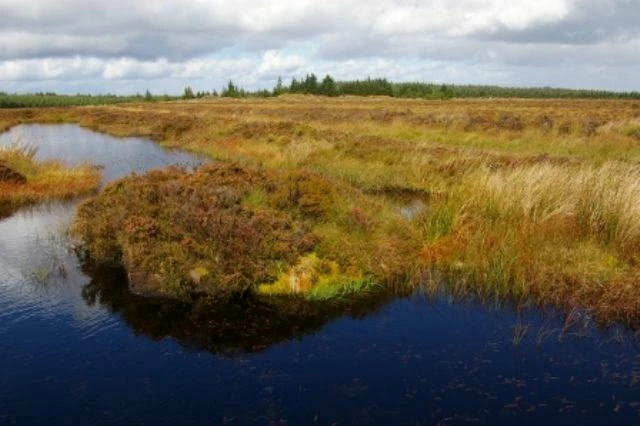
Partner Article
Organisations call for Government five-point plan to protect England’s ‘vital’ uplands
From Dartmoor to the Peak District and from the North York Moors to the Northumberland Hills, England’s uplands are iconic landscapes that improve the environment, help combat climate change, provide havens for nature and benefits for people, such as clean drinking water.
Nowhere is this statement truer than upland peatlands such as the Border Mires in West Northumberland. But today a partnership of wildlife groups and industry is reminding government only four per cent of England’s upland peatlands are in good ‘ecological’ condition, and the remainder is not living up to its potential for providing homes for nature and combating climate change.
Today, the RSPB, National Trust, The Wildlife Trusts, other conservation and industry organisations have written to the Secretaries of State in charge of Defra and the Department for Energy and Climate Change challenging them to take action on five key areas on 200,000 hectares of England peatland: • Work to bring England’s upland peatlands back into the condition that will maintain the vital ecosystem services these habitats provide for society; • Support and play its part in the IUCN’s UK Peatland Programme’s target for one million hectares (200,000 ha in England) of healthy and well-managed upland peatlands by 2020, and the Committee on Climate Change’s call to triple the area of upland peatland being restored; • Develop capital funding for peatland restoration, through a combination of public and private contribution and partnerships, commensurate with the above scale of ambition for upland peatland restoration; • Secure funding to ensure ongoing well-managed upland peatlands through a combination of rural funding and market related funding routes, including the practical development of innovative routes including the Peatland Carbon Code; • Work to swiftly adopt a methodology for estimating carbon fluxes from peatlands in common with other UK countries, include peatland carbon in greenhouse gas inventories and voluntarily include peatlands in the UK’s Kyoto Protocol reporting.
Duncan Hutt, Northumberland Wildlife Trust’s Head of Land Management said: “The peat which blankets vast swathes of our Northumberland uplands is a vital and special resource. These areas are not only wonderful places for people to walk and enjoy, they’re also home to a very special range of amazing and internationally important plants and animal and such peatlands give us much more than that too as they are a massive store of carbon and they capture and hold large volumes of water.
In fact, the drinking water supply for many millions of people comes from these peat landscapes - if we look after them and help them to recover, they will help us respond to climate change and save money for society in the long term.“
Martin Harper is the RSPB’s Conservation Director, he said: “Although our upland peatlands are revered by many, ironically for too long they have been neglected, preventing them from reaching their potential as sources of clean water, sinks to help trap carbon or refuges for threatened species. Restoring these peatland sites will help wildlife, soak up carbon and increase their appeal as wonderful places to visit.”
Patrick Begg Rural Enterprises Director of the National Trust, said: “Peatlands are the UK’s rainforest, locking up over 400,000 tonnes of carbon per year, slowing floodwaters, filtering drinking water, and providing a unique landscape, habitat and home for wildlife. But they’ve been in serious decline for over 150 years. The Trust’s 50-year vision for our High Peak Estate maps out what can be done, but we need to act faster and together everywhere - landowners and Government - to turn things round and put all our peatlands back into good health.”
The range of partner organisations includes: Buglife, Campaign for National Parks, CPRE, Dartmoor Mires Project, Exmoor Mires Project, John Muir Trust, National Trust, North Pennines AONB Partnership, RSPB, South West Water, The Wildlife Trusts, and United Utilities.
This was posted in Bdaily's Members' News section by Sue Bishop .
Enjoy the read? Get Bdaily delivered.
Sign up to receive our daily bulletin, sent to your inbox, for free.








 Why investors are still backing the North East
Why investors are still backing the North East
 Time to stop risking Britain’s family businesses
Time to stop risking Britain’s family businesses
 A year of growth, collaboration and impact
A year of growth, collaboration and impact
 2000 reasons for North East business positivity
2000 reasons for North East business positivity
 How to make your growth strategy deliver in 2026
How to make your growth strategy deliver in 2026
 Powering a new wave of regional screen indies
Powering a new wave of regional screen indies
 A new year and a new outlook for property scene
A new year and a new outlook for property scene
 Zero per cent - but maximum brand exposure
Zero per cent - but maximum brand exposure
 We don’t talk about money stress enough
We don’t talk about money stress enough
 A year of resilience, growth and collaboration
A year of resilience, growth and collaboration
 Apprenticeships: Lower standards risk safety
Apprenticeships: Lower standards risk safety
 Keeping it reel: Creating video in an authenticity era
Keeping it reel: Creating video in an authenticity era